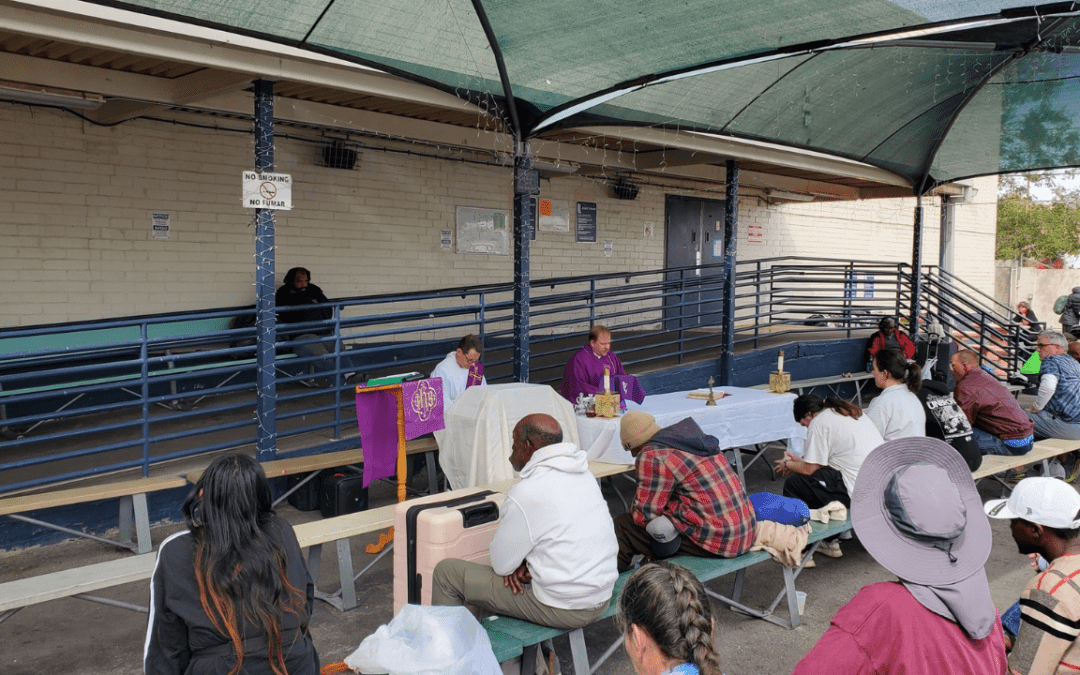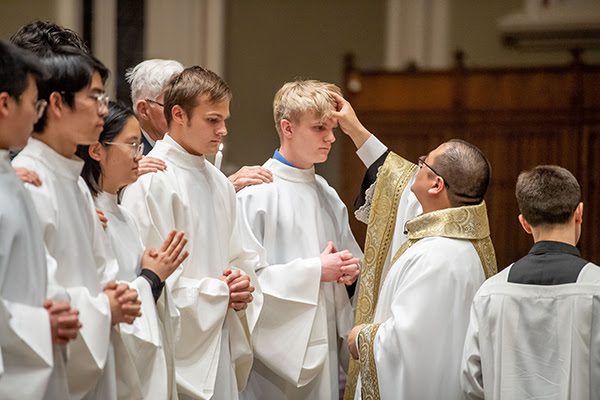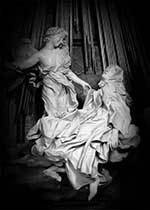
“What is love?” asked the novice of the master.
Without hesitation the novice master replied,
“Love is the absence of all fear, for love casts out fear!”
Yet because he wished to justify himself, the novice asked further,
“But what is it we fear?”
With a wry, gentle smile the novice master replied softly, “Love, of course.”
Why would we fear love? Is not love that beautiful, tender, feeling of deep, wondrous affection? Is it not an emotion instilling within us strong, seemingly unbreakable bonds of mutual concern and joy such that love reveals a meaning of life like none other? Is not love’s attainment the pinnacle of a purposeful life? Most certainly it is.
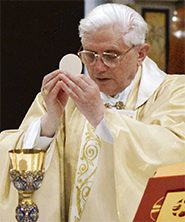
How could we possibly fear love and the God whose love for us is unconditional? Why would we fear love? There is no sense to it. Why not embrace love with abandon? As Pope Benedict XVI notes in his encyclical Deus Caritas Est, “All other powers in heaven on earth appear secondary to love: ‘Omnia vincit amor’ says Vigil in the Bucolics love conquers all and he adds: ‘et nos cedamus amori’ let us, too, yield to love.” Yes, let us yield to love for our holiness, our sanctity is found in love. As Leon Bloy the 19th century essayist once wrote, “The only real sadness, the only real failure, the only great tragedy in life, is not to become a saint.”
Saints live and move and have their very being in God’s love. As the prophet Jeremiah expressed it, they have been seduced by God. They cannot live outside the bond of love. It is impossible.
Love, the joy of true love, has its fine print. It is a joy like none other, yet, paradoxically, it is found not in receiving but in giving. It is discovered not in actualizing one’s self but only in self-oblation, i.e., dying to one’s self by the giving of self without the expectation of receiving anything in return, except of course, the return of love’s fullness! It is a love given to others unconditionally as God’s love is unconditional. But unconditional love is not the easy grace of “anything goes.” It is rather the seemingly cruel demand that it is everything of one’s self that must go for the sake of the other. The dynamic of “being there” for another, is lived at the high cost of losing one’s self for the sake of the other. Indeed it is only in the total, unconditional giving of one’s self, holding back nothing, tolerating no hesitation whatsoever, that true love is born, that saints are made. If we hem and haw then true love is diminished, it is impoverished, it simply destroys itself; its very nature crumbles in ruins. We give all for all only in losing all for all. It is what makes of us saints.
True love is indeed a harsh and dreadful thing as Fyodor Dostoyevsky bluntly stated. It is not a fantasy of dreams but it is labor and perseverance through exigencies of infinite proportion.
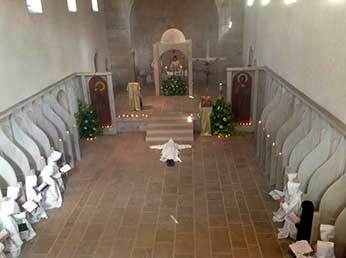
I have the privilege of serving as chaplain for the Monastery of Bethlehem, a community of monastic sisters who live lives of solitude and silence, not lives of isolation or suppression of the Word. The Word speaks clearly in silence. Their lives are holy because they learn to cross over into the heart of God, discovering there the love beyond all telling, God’s jealous love that demands everything from them. They live as a community of saints, witnessing to the journey of the heart that we all are invited to travel without condition, without hesitation. A gentle paraphrasing of their monastic catechesis reveals a practice for a love which is all in all. “You have let yourself be attracted more and more by the infinite love of God and to answer with all your strength, day after day, hour after hour, to God speaking to your heart, seducing you, drawing you in love to Himself. Love God above all else, love Him more than all that He has given to youSeek Him for Himself and not for His gifts. Love all, even those who do not love you. Receive them continually in your prayer. May your love for them grow to the very measure of the love of God. Yours is the mission of being at the heart of the Church, love which believes, love which hopes and love which worshipsRejoice and be glad, for the Lord, from the offering of yourself to His kingdom, will make justice and praise spring forth before the face of all the nations.”
May we, too, live our lives so as to avoid the greatest of all tragedies, to avoid the only real failure in life, the only true sadness: not to become saints in God’s love. We need not be discouraged: “every saint has a past; every sinner a future.”
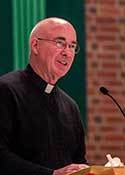
Fr. Hugh Cleary, C.S.C., served for 12 years as the Superior General of the Congregation of Holy Cross. Currently he is serving as chaplain at the Monastery of Bethlehem in Livingston Manor, New York. Read other homilies and reflections by Holy Cross priests and brothers here on the Spes Unica Blog.

